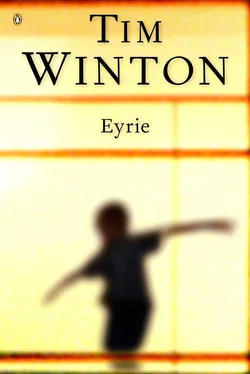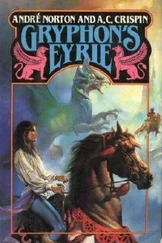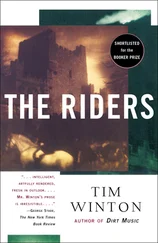The whole Scrabble business was a mystery to Keely. Kai had the Nintendo, after all, and kids were supposedly addicted zombies after only a day or two’s feverish toggling, but although the boy seemed to enjoy murdering thugs and aliens, and often shouted disconcertingly at certain leering villains, the excitement wore off after the first mad binge. He never completely forsook Super Mario, but tended to lose energy after half an hour or so and drift to the laptop whose charm lay in the keyboard as much as the screen. As far as Keely could tell, Gemma had never played Scrabble with him. Perhaps he’d seen something on TV — he didn’t say and Gemma couldn’t recall, didn’t find the question nearly as intriguing as Keely did. The boy was in his first year of school and yet he could already read extremely well and write after a fashion. Keely wondered who’d taught him. It didn’t seem possible he could have absorbed it all himself. He got simple words arse-about, and certain letters as well. It was strange to watch him hunched at the computer, wheezing slightly, experimenting — building words with cautious pecks at the keys, consciously or inadvertently creating lists that plunged down the screen like ratlines.
Keely was excited at the prospect of teaching Kai to play, but he wondered how the kid would fare. It wasn’t the raciest board game invented. But from the outset Kai seemed less interested in scores than in the words themselves. Games might begin in a spirit of boyish competition, but Kai seemed to fall into a trance, rousing now and then in a momentary shiver of recognition. Keely imagined the syllables emerging from chaos. He recalled his own childhood, how words hid as if aching to be found, transformed by his gaze, reaching out to meet him. He was fascinated by the way the boy handled the tiles, how he turned them over in his hands, running the tips of his thumbs across their faces as if tempted to slip them into his mouth like milky chocolates. His fingers twitched, tantalized, over the board, as he breathed upon his row of letters on their little pine plinth.
Kai was an exacting playing partner. He did not like tiles to fall out of alignment on the board. And there was no point making conversation or daggy jokes between moves because he’d stiff you. The only time he tolerated noise was during the initial shaking and shuffling of pieces in the box lid before the game commenced. Then he seemed like any other kid. He liked to rifle through the tiles like a miser with his loot — Scrooge McDuck in the vault — but once he settled down it was all sober concentration. He did not enjoy the letter Q. And blanks, letters that were mutable, seemed to cause him anxiety; they had to be marked laboriously with a pencil before he could accept them as real, and even then they troubled him, as if there were something untrustworthy about their nature. But defeat didn’t bother him. And thankfully he was bored by the tedious endgame. Like Keely, he had no interest in plugging holes with two-letter words or suffixes, scrounging points in endless rounds of lexical puttying. Once the rich pickings were gone he began to fidget and Keely was only too happy to concede a comradely draw and start afresh.
They played afternoons and evenings all week; it became a routine. And apart from his morning swim this was soon the thing Keely most looked forward to. Something to digest, really, the knowledge that a game of Scrabble with a six-year-old had become the highlight of his day. But there was weird pleasure in it, something he’d been missing for longer than he cared to think.
Often as not Kai came straight from school bearing a new sketch — a wattlebird, a kingfisher, a heron — and Keely sent him home for his fruit and biscuits and lime cordial before he returned with the Scrabble box pressed to his chest. Around five Gemma came by to dragoon the boy into showering and Keely followed them up the gallery to 1010 where she’d already have the makings for dinner on the bench. Evenings settled into a pattern of school notes fixed to the fridge door, and reading before bedtime. Their conversation became desultory, as if the adults were partners in a faded marriage. It amused him, and he was grateful for it, but often he yearned for more. Not high conversation, nothing taxing. But he would have liked to know things, to press her for details, facts about her life and Kai’s. He wondered about her sister, Baby. There were so many gaps, years and relationships, disasters and hurts he was left to infer. And there were moments, too, when Gemma’s physical proximity caused him pangs.
Even so he felt that his life was different, that it had finally tilted towards something coherent. The headaches seemed more bearable. He could suffer Gemma’s diffidence because of Kai. At day’s end, he and the boy played their games of Scrabble and Super Mario, talked birds and habitat, rifled through the dictionary, googled odd facts in a long and pleasurable post-ponement of bedtime. The nightly challenge was to present the kid a story, like a cat dragging in a rodent. As Keely perched at the bedside, waiting for any flicker of inspiration, the boy noted the progress of his shiner as the contusion flared, morphed, and began, thankfully, to fade. It was kind of charming — flattering, really — having him catalogue every change of colour.
You like this shiner, he said to Kai.
No, said the boy. Just makin it go away.
*
The kid had tropes and sayings, things that stuck in Keely’s head.
At the start of a game: Seven tiles, he said, almost chanting. Seven letters. Like seven days. 7-Eleven. 24/7. Always seven. Gotta be seven.
Then at bedtime: Wattlebirds. They eat spiders. If there’s too much spiders there’s too much poison. In the world.
When Keely’s jokes wore thin: No, Tom. No falling.
At dusk : Look. The lighthouse. Counting the night.
During an episode of Friends: Eagles. They’re killers. Do they get to go to Heaven?
In Keely’s flat: Really, but. Where do words come from?
*
At home alone at night, he sat up late resisting all temptation, exhausted but unable to rest his mind. He tried re-reading Catch-22 and marvelled that he’d found it so mordantly funny in his youth. Now it was too distressing. He wanted to shout at the novelist: no more, no fooling, no falling.
Mostly, though, he felt okay, more or less functional. Just bubbling with thoughts that kept him from sleep, watching the Parker Point lighthouse measure out the darkness.
He thought a lot about Kai. Especially the way he resisted sleep. As if it were something to fear, not a release. Except for those final moments, the slipping away, the kid avoided physical contact. Keely had to police himself, refrain from tousling the kid’s hair or shoving him playfully in passing. As a boy he’d loved being monstered by Nev, rolled on the floor in a headlock, tickled until he was blue. He liked to be overwhelmed by him and then have at him with camel bites and knee jabs — just to feel and make himself felt in return. But Kai could find space where there seemed to be none; he could sidestep any well-meaning pat or squeeze, as if his body anticipated yours, as if he were monitoring your every movement.
The boy retreated into silences, reveries, fugues. During which he was impassive, unreachable. He could blink you away, delete you from his presence, and these silent lockouts sent Gemma into furies. There was so much Keely didn’t understand. It was as if he’d stumbled into a play halfway through the show. And he wondered if he’d ever catch up.
But he adjusted to some things rapidly, even if he didn’t know what they signified. Like the bedtime ritual, which he came to need as much as the boy. There was something about that period of potent, dreamy calm between the pair of them, the intimacy of the whispered story and the long silences that ensued. The way Kai drifted beside him in the shafted gloom, unmoored from the day and his defended self. Every night came that moment of panic before surrender when the boy made solid contact, seizing him, the arm shooting out like a baby’s startle reflex, the hand gripping Keely’s shirt as if he were steadying himself before finally letting go.
Читать дальше












